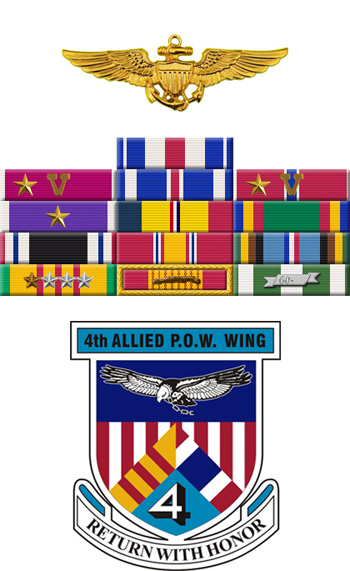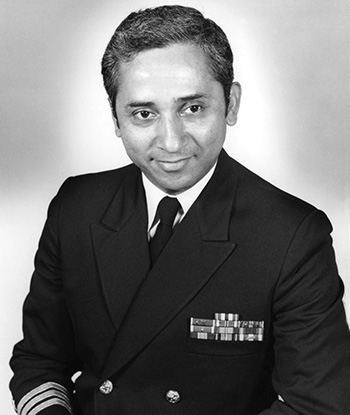
|
Everett Alvarez, Jr. |
 |
|||
| Rank, Service | ||||
Commander O-5, U.S. Navy |
||||
| Veteran of: | ||||
|
||||
| Tribute: | ||||
Everett Alvarez was born in 1937 in Salinas, California. He graduated from the University of Santa Clara in California with a Bachelor of Science Degree in Electrical Engineering in 1960, and entered the Navy through the Aviation Officer Candidate Program on June 23, 1960, receiving his commission in October 1960, and graduating from Flight School and being designated a Naval Aviator in November 1961. Alvarez's first assignment was with Attack Squadron 144, flying the A-4 Skyhawk. He began flying combat missions from the USS Constellation during the Gulf of Tonkin Incident, and was shot down and taken as a Prisoner of War on August 5, 1964, on the first raid into North Vietnam. Alvarez was the longest held aviator shot down in North Vietnam, and spent the next 3,113 days in captivity before being released during Operation Homecoming on February 12, 1973. After hospitalization, Alvarez briefly attended refresher flight training with VT-21 at NAS Kingsville, Texas, and then attended the U.S. Naval Post Graduate School in Monterey, California, where he received a Master's Degree in Operations Research and Systems Analysis in October 1976. His final assignment was in Program Management at the Naval Air Systems Command in Washington, D.C., from October 1976 until his retirement from the Navy on June 30, 1980. After his retirement, President Reagan nominated Alvarez as Deputy Director of the Peace Corps, where he served from April 1981 to August 1982. During this time, President Reagan nominated him as the Deputy Administrator of the Veterans Administration, and he served in this position from August 1982 to 1986, when he went to work as Vice President for Government Services of Hospital Corporation of America. Alvarez left that company in late 1987 to form his own consulting company, Conwal Inc. He also formed Alvarez & Associates, another consulting company, in January 2005. Everett is married to the former Thomasine (Tammy) Ilyas of Pittsburgh, Pennsylvania, and they have two sons, Marc and Bryan. |
||||
|
||||

